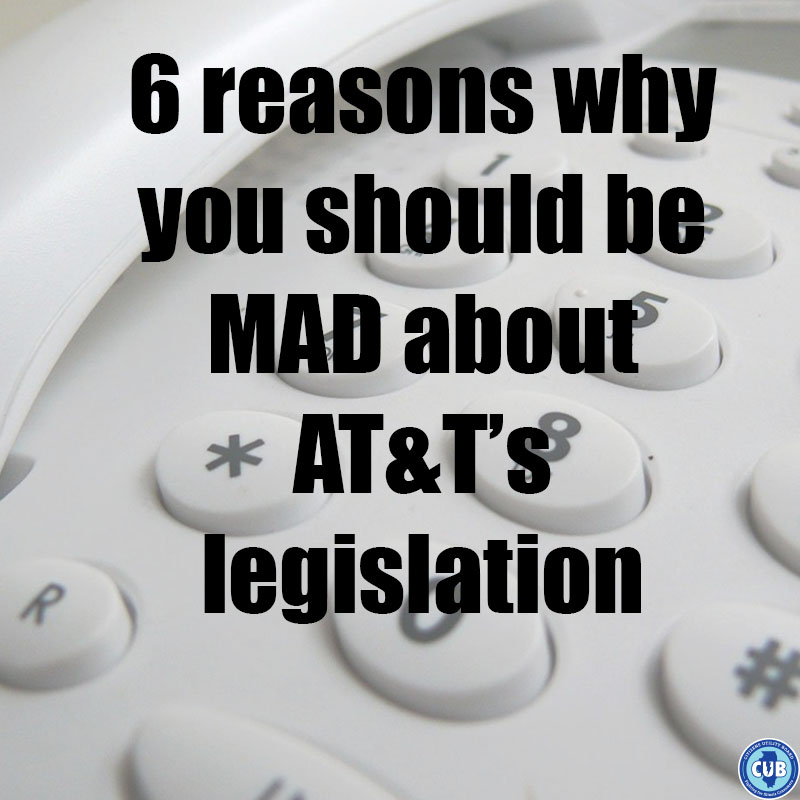
Click the picture to read CUB’s Q&A about the end of AT&T’s Consumer’s Choice plans, an unfortunate side effect of the legislative session.
1) Utilities get an exemption: The legislation contains a four- to five-year exemption for key customers, such as utilities. It proves copper landlines still play a key role—and it also begs the question: If it’s so important to protect landline service for those customers, then why not for the millions of others who depend on it as their most reliable connection to vital services such as 911, home security systems and medical monitoring?
2) AT&T killed a price freeze on local phone service. In passing its legislation, AT&T eliminated a state-mandated price freeze on the Consumer’s Choice plans. These plans, which were created by CUB under a legal settlement with AT&T, were Illinois’ best local phone deals. AT&T argues that traditional phone service is getting more expensive. If that is the case, it’s because AT&T lobbied to kill this freeze.
3) Many people have few choices. AT&T says home phone service isn’t going away, “it’s actually getting better.” But people who rely on landlines have limited options. Wireless service, Internet-based phones and bloated “triple-play” packages from the cable company aren’t as easy, reliable or affordable as plain old telephone service. AT&T’s Internet phone service requires a pricey broadband connection, and you can’t make calls during an Internet outage or a power outage (without paying for a battery backup).
AT&T’s “wireless home phone”—a traditional-looking receiver connected to the cell network—isn’t compatible with security systems and medical monitoring services.
Smartphones are wonderful, but they don’t come cheap, and they need to be charged. Plus, people in rural areas and in the aftermath of disasters learn just how spotty or nonexistent cell service can be.
4) None of the alternatives are as reliable as landlines. AT&T’s 14-state wireless 911 outage earlier this year doesn’t give traditional landline customers confidence that the company can provide satisfactory alternatives. Advanced 911—which can trace the exact location of a cellphone—won’t be fully implemented in Illinois until 2020, at the earliest. For the most vulnerable phone customers, landlines don’t leave 911 dispatchers guessing.
5) AT&T was profitable under the old consumer protections. AT&T argues that it doesn’t have enough resources to offer landlines AND modernize its network—ignoring its $58 billion in profits over the last five years. The company forgets that Illinois consumers have paid for its network many times over. Also, while AT&T argued that its legislation was about modernizing the network, nothing in the new law requires AT&T to modernize.
6) AT&T dismisses landline customers. While AT&T describes landline customers as a small percentage, this debate isn’t about percentages, it’s about people. “I’m not against cellphones,” said Carol, whose landline connects to her pacemaker/defibrillator. “But we can’t guarantee cellphones will work all the time for important devices like mine.”

